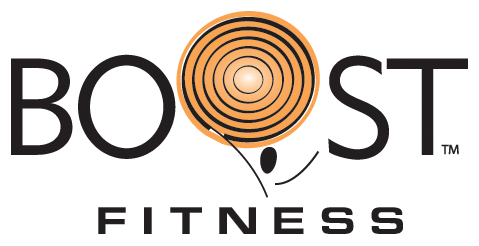Strength training is designed to define, tone and strengthen your whole body! This is accomplished through the use of resistance which can take the form of a weighted bar, plates, or body weight in Group Power, weighted dumbbells, plates, or body weight in Group Active, or the body weight in Group Centergy, Group Kick or Group Step. In addition to this resistance training, the cardio portions of all of these classes and other cardio based Group Fitness classes have a strengthening benefit as the muscles overcome the resistance of the cardio workout.
Two Group Fitness based strength training programs you might find at your club are Group Power, which focuses exclusively on strength training, and Group Active, which incorporates cardio, balance, and flexibility training in addition to strength training.
The Benefits of Strength
How can strength training help you? Check out the proven advantages:
- You lose weight
- You lose body fat
- You tone your muscles
- You have more endurance
- Your clothes fit better
- You burn more calories both during exercise and when resting
In addition to these benefits, strength training keeps your bones and connective tissues strong. Since we may start losing muscle and bone strength beginning in our 20s, a strength training program like Group Power or Group Active can help reduce or stop these losses in their tracks.
What to Expect in Class
One of the great parts of Group Power, or the strength portions of Group Active, is that you work with adjustable weights so you can pick the perfect weight for your. As you gain strength, you can choose to add weight when you're ready, or it you have to take some time off or are having a bad day you can remove a bit of weight so that you can still benefit from a challenging but not overwhelming experience. The important thing is that you pick a weight that is challenging for YOU on any given day.
In addition tot he benefit of adjustable weights, using the plates alone in Group Power or the dumbbells in Group Active allows us to use both arms together, or one at a time. You'll usually experience both in every release. This helps keep one side of the body from compensating for the other and helps balance the strength of the body.
Don't forget the importance of core strength or strength in the muscles of the abdomen and the back. This area plays a big role in good posture, athletic performance, and in overall well being. Group Active, Group Centergy, Group Kick, Group Power, and Group Step all have one or more sections that typically incorporate core strengthening exercises.
Group Power and Group Active strength training take a whole body and peiodized approach to strength training. The whole body aspect means that you will be training most, if not all, of the major muscle groups during the class time frame. This also has the benefit of balancing strength so that no single area of the body becomes stronger than another. This is important because muscle imbalance, or one side of the body being much stronger than the other (for example the front versus back of the leg), can lead to injury.
Periodization refers to the variation of a workout over time. Group Power and Group Active training is designed with this in mind. Because our bodies are so good at adapting to stress, if we always do the same workout, it will eventually not be challenging any longer as your body adapts. Varying the workout keeps the body "guessing" so that the results and corresponding benefits keep coming.
